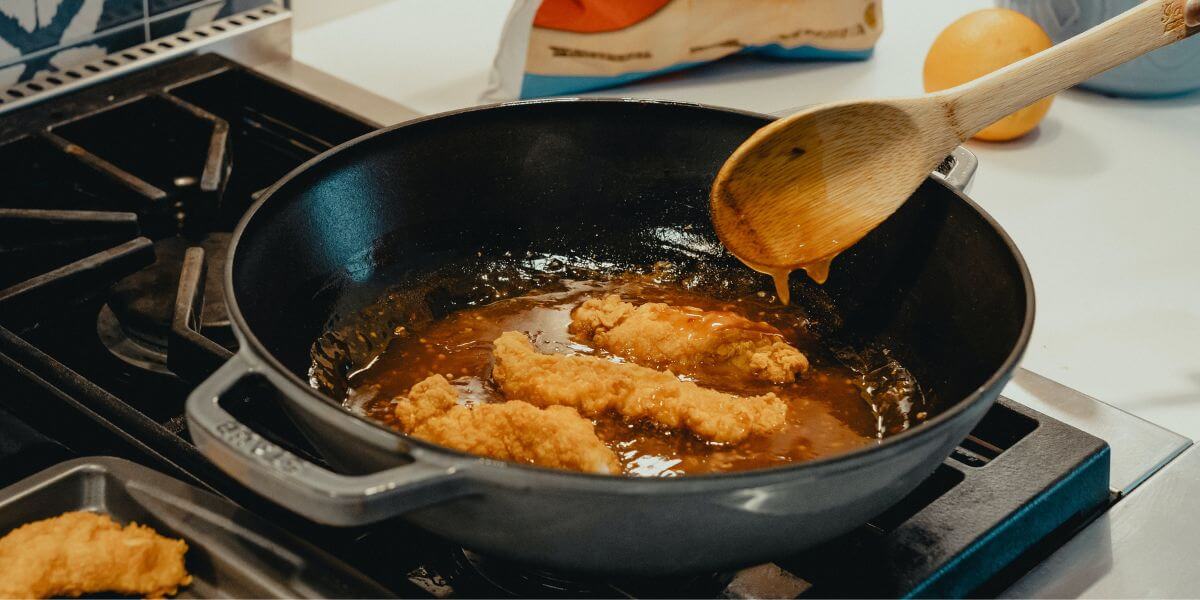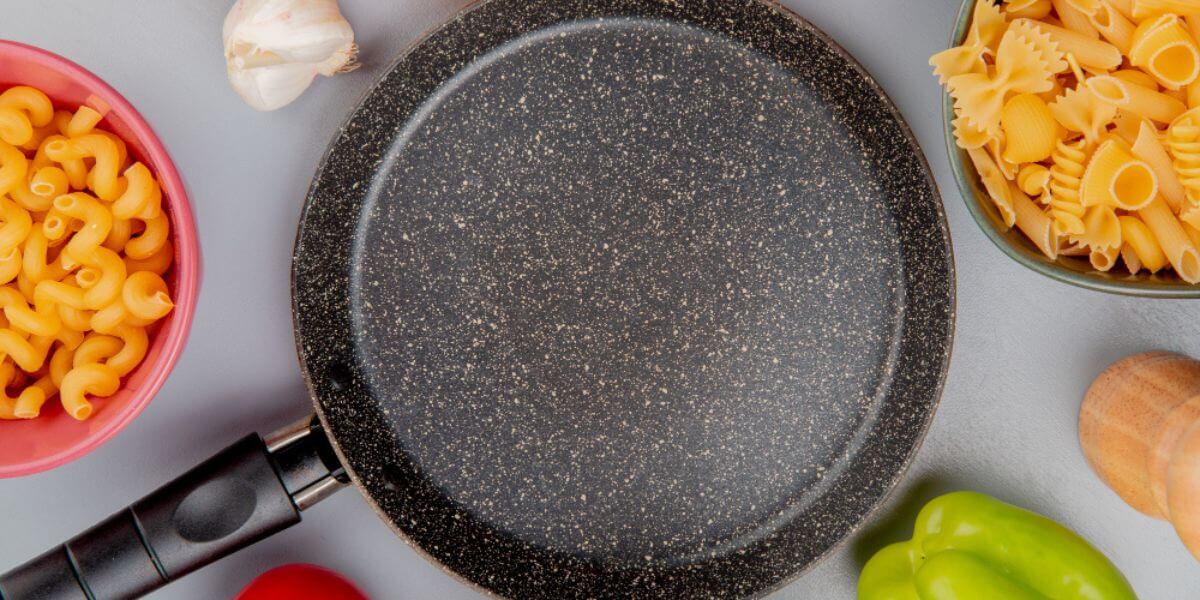Ceramic Cookware Pros and Cons: Everything You Need to Know


Ceramic cookware has become popular among home cooks due to its non-stick properties, durability, and versatility. However, as with any kitchen equipment, there are pros and cons to using ceramic cookware. In this article, we’ll explore the advantages and disadvantages of ceramic cookware, so you can make an informed decision when choosing your cookware.
What is Ceramic Cookware?
Natural clay is used to make ceramic cookware, fired at high temperatures to produce a non-stick cooking surface. The cookware is then given a glossy finish and glazed to make it simpler to clean.
Ceramic cookware comes in different shapes and sizes, from pots and pans to casseroles and baking dishes. Gas, electric, ceramic stovetops, and the oven it can use, make it a versatile addition to any kitchen.
Pros of Ceramic Cookware
Non-Stick Properties
Ceramic cookware is familiar with its non-stick properties, making it a great choice for low-fat cooking. The non-stick surface allows food to slide off the pan easily, without extra oil or butter, making it a healthier cooking option.
Versatility
Gas, electric, ceramic stovetops, and in-the-oven ceramic cookware can be used, making it a versatile addition to any kitchen. It can use for boiling, simmering, sautéing, and frying, making it perfect for various cooking techniques.
Durability
Ceramic cookware is known for its durability and can last for years with proper care. It is resistant to scratches and chips, making it a great choice for everyday use.
Health Benefits
Natural materials used to make ceramic cookware and free from dangerous chemicals such as PFOA and PTFE, commonly found in non-stick cookware. It makes ceramic cookware a healthier cooking option.
Easy to Clean
Ceramic cookware is easy to clean, thanks to its non-stick surface. Food particles slide off easily; the cookware can be washed with soap and water.
Aesthetically Pleasing
Ceramic cookware is available in various colors and designs, making it a massive addition to any kitchen. It can be used for serving dishes and attaching an extra touch of style to your dining.
Cons of Ceramic Cookware
Cost
Ceramic cookware, such as stainless steel or cast iron, can be more expensive than other types.
Fragility
Ceramic cookware can be fragile and chip or crack if dropped or bumped against a hard surface.
Heat Distribution
Ceramic cookware may not distribute heat evenly, leading to hot spots and uneven cooking. It can be a problem if you’re cooking something that requires precise heat control.
Staining
Ceramic cookware may become stained over time, especially if you cook acidic foods like tomatoes or citrus fruits. It can be difficult to remove and may affect the appearance of your cookware.
Limited Color Options
While ceramic cookware comes in various colors and designs, the options may be limited compared to other types of cookware.
Not Suitable for High-Heat Cooking
Ceramic cookware is unsuitable for high-heat cooking, such as searing or grilling, as it may crack or warp at high temperatures.

Choosing the Perfect Ceramic Cookware: Factors to Consider Following Pros and Cons
When choosing ceramic cookware, there are a few things to keep in mind:
- Look for cookware made from high-quality materials with a thick and even base.
- Choose cookware that is dishwasher-safe for easy cleaning.
- Consider the size and shape of the cookware and how it will fit into your kitchen.
- Choose cookware suitable for the cooking you do most often.
- Check for a warranty, as this can indicate quality and durability.
Conclusion
Ceramic cookware has many advantages, including its non-stick properties, durability, and versatility. However, ceramic cookware has some disadvantages, such as its fragility and limited heat distribution. When choosing ceramic cookware, it’s essential to consider your cooking needs and preferences, as well as the quality and durability of the cookware.
Frequently Asked Questions
Is ceramic cookware safe to use?
Yes, ceramic cookware is generally safe and free from dangerous chemicals like PTFE and PFOA.
Can you use metal utensils with ceramic cookware?
It’s best to use non-metal utensils with ceramic cookware, as metal utensils may scratch or damage the non-stick surface.
Can ceramic cookware go in the oven?
Yes, ceramic cookware is oven-safe, but check the manufacturer’s instructions for specific temperature limits.
How do you clean ceramic cookware?
Ceramic cookware can be cleaned with soap and water and maybe dishwasher safe.
How long does ceramic cookware last?
With proper care, ceramic cookware can last for several years. However, it may become stained or chipped over time, affecting its appearance and durability.



